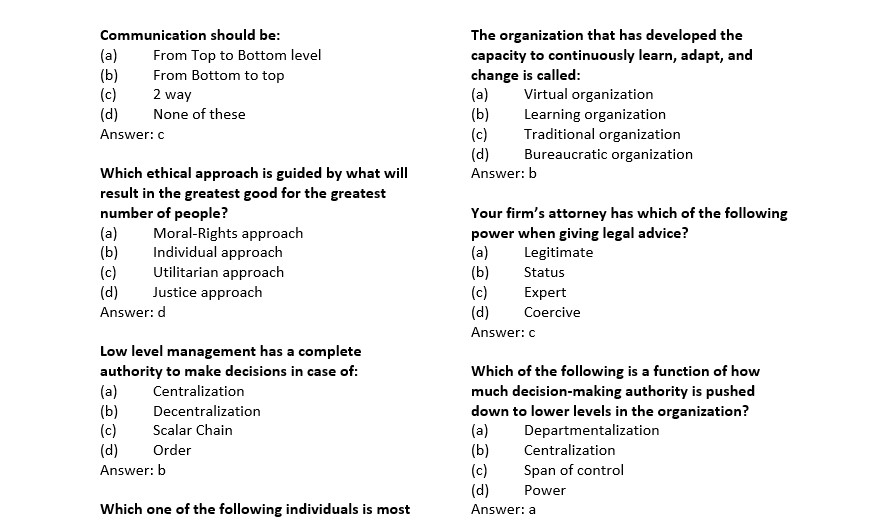PROFESSIONAL TEST MCQs with Answers (Set-1) for FPSC Senior Auditor Tests
1. Wages are paid for:
(a) Short term period
(b) Long term period
(c) All of the given options
(d) None of the given options
2. Which of the following is false?
(a) One reason for failure of small businesses is lack of managerial experience.
(b) One reason for failure of small businesses is that most entrepreneurs are younger than 25 years old
(c) One reason for failure of small businesses is neglect.
(d) One reason for failure of small businesses is weak control systems.
3. Which of the following is NOT a secondary industry?
(a) Construction industry
(b) Manufacturing industry
(c) Genetic industry
(d) Services industry
4. Industry is further divided into ______kinds.
(a) 2
(b) 3
(c) 4
(d) 5
5. Primary Industry is divided further in to
(a) Extractive
(b) Genetic
(c) Both a & b
(d) None of these
6. Secondary Industry is divided further in to
(a) Construction
(b) Manufacturing
(c) Services
(d) All of these
7. All of the following statements are true regarding partnerships except ________.
(a) There is no partnership income tax; the individual partners pay a personal income tax on their portion of partnership profits
(b) If the partnership agreement does not specify otherwise, profits will be shared equally by the partners
(c) A partnership balance sheet is much like that of a proprietorship
(d) The death of a partner dissolves the partnership and all assets must be liquidated
8. Marketing should begin with ________.
(a) Potential customer needs
(b) The production process
(c) Identifying customer needs
(d) All of the given options
9. Which one of the country has more collectivist culture?
(a) USA
(b) Japan
(c) Pakistan
(d) UK
10. New and revised products may be tested through:
(a) Commercialization
(b) Product life cycle
(c) Family brands
(d) Marketing research
11. In which of the following do two or more organizations collaborate on a project for mutual gain?
(a) Limited partnership
(b) Joint venture
(c) Public corporation
(d) Strategic alliance


